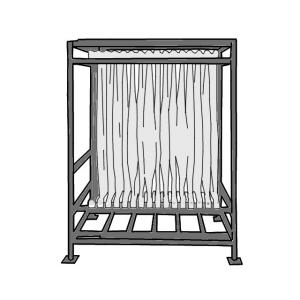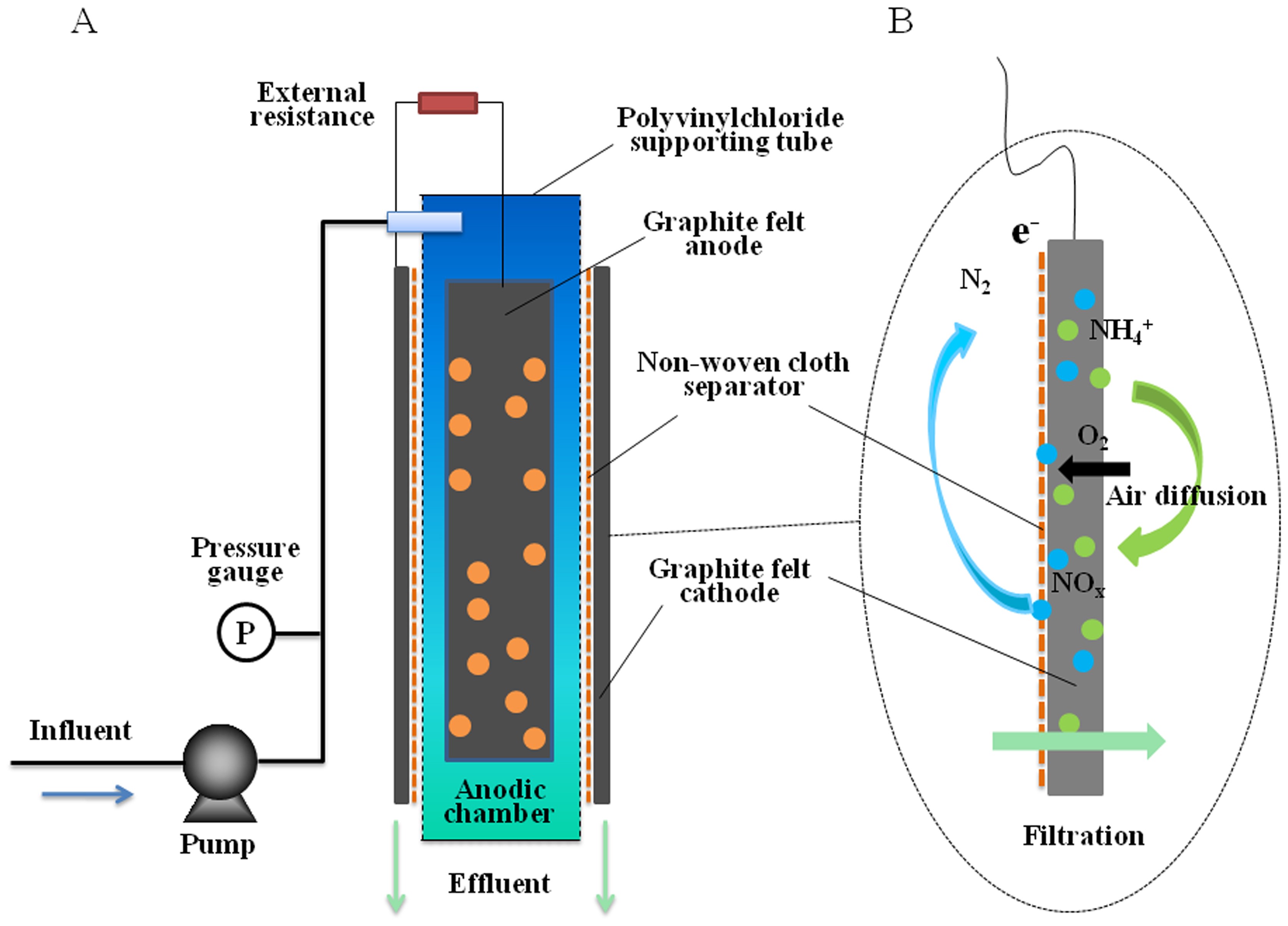How Membrane Bioreactor Technology Is Revolutionizing Wastewater Treatment
How Membrane Bioreactor Technology Is Revolutionizing Wastewater Treatment
Blog Article
The Advantages of Membrane Layer Bioreactors in Sustainable Wastewater Management
Membrane bioreactors (MBRs) represent a crucial innovation in lasting wastewater administration, effectively combining biological therapy with innovative membrane purification modern technology. As the demand for lasting remedies escalates, discovering the complex benefits of MBRs may reveal unexpected implications for the future of wastewater therapy systems.
Review of Membrane Layer Bioreactors
Membrane bioreactors (MBRs) stand for a significant improvement in wastewater therapy innovation, integrating organic deterioration with membrane filtering to boost the performance of the therapy process. This cutting-edge system combines the advantages of traditional triggered sludge processes with membrane innovation, enabling for boosted solid-liquid separation. MBRs make use of semi-permeable membrane layers to separate cured water from biomass, resulting in high-grade effluent that can be recycled or securely released into the atmosphere.
The functional style of MBRs usually includes a bioreactor where bacteria break down organic issue, adhered to by a membrane unit that filters the blended liquor. This arrangement not only lessens the footprint of the therapy center however additionally permits greater biomass focus and lowered hydraulic retention times. In addition, MBRs can treating a bigger variety of contaminants, consisting of virus and nutrients, making them ideal for numerous applications, from local wastewater therapy to industrial effluent handling.
The assimilation of MBRs into wastewater monitoring systems is a measure of an expanding trend in the direction of reliable and lasting practices in ecological design. Their capacity to generate top notch effluent while decreasing room needs settings MBR innovation as a principal in modern-day wastewater treatment services.
Enhanced Effluent Top Quality

The membrane layer purification procedure works as a physical obstacle, allowing the retention of microorganisms and particle issue, which adds to a more clear and cleaner effluent (Membrane Bioreactor). MBRs operate at higher biomass focus than standard triggered sludge systems, promoting a lot more reliable biodegradation of pollutants. This leads to a decrease in biochemical oxygen need (BOD) and overall put on hold solids (TSS) degrees in the last effluent
Furthermore, MBRs show superb efficiency in dealing with tough wastewater make-ups, such as commercial effluents and wastewater with high nutrient loads. Because of this, the effluent produced is frequently of better, permitting more versatile disposal choices and minimized ecological effect. Ultimately, the boosted effluent high quality attained with MBR technology highlights its vital role beforehand sustainable wastewater management techniques.
Water Reuse Opportunities
The high-quality effluent created by membrane layer bioreactors (MBRs) opens considerable opportunities for water reuse in numerous applications. MBRs successfully remove pollutants, consisting of microorganisms, put on hold solids, and raw material, causing cured water that fulfills or goes beyond regulatory standards for reuse. This high quality enables the execution of water reusing efforts across varied fields.
One prominent application remains in agriculture, where treated wastewater can be made use of for irrigation, promoting sustainable farming techniques while preserving freshwater resources. In addition, MBR-treated effluent can be utilized for commercial procedures such as cooling, cleaning, and as a procedure water source, considerably minimizing the need for drinkable water in these procedures.
In urban settings, MBRs promote using recovered water for landscape irrigation, commode flushing, and various other non-potable uses, adding to the total durability of water systems. Additionally, the integration of MBR innovation in decentralized systems help in handling localized water needs, specifically in water-scarce areas.
Decreased Ecological Influence
Just how can the fostering of membrane bioreactors (MBRs) add to a lowered ecological influence in wastewater administration? MBRs dramatically improve the therapy efficiency of wastewater while reducing eco-friendly disruptions. By incorporating organic therapy procedures with membrane layer filtration, MBRs effectively eliminate a large range of contaminants, including organic matter, nutrients, and microorganisms. This sophisticated filtration results in higher-quality effluent, which is essential for shielding aquatic ecological communities and minimizing the worry on all-natural water bodies.
Moreover, MBRs operate at lower hydraulic retention times contrasted to standard systems, resulting in smaller sized therapy plant footprints. This portable style lowers land use, therefore maintaining natural environments and biodiversity. The procedure also produces less sludge than traditional techniques, minimizing disposal obstacles and decreasing greenhouse gas discharges related to sludge monitoring.
Furthermore, MBRs help with the healing of beneficial sources, useful site such as water and nutrients, adding to a circular economic situation. By enabling water reuse for irrigation or commercial procedures, MBRs aid ease freshwater shortage, hence promoting lasting water utilize practices. Ultimately, the fostering of MBR modern technology represents a significant stride towards reducing the environmental influence of wastewater management systems.
Economic Advantages of MBRs

Additionally, MBRs facilitate the production of high-grade effluent, which can be reused for various applications, such as agricultural irrigation and industrial procedures - Membrane Bioreactor. This reuse capability can dramatically lower water procurement expenses, giving an economic reward for sectors facing rigid water policies
The small style of MBR systems additionally results in decreased land needs, which is specifically useful in city areas where property is expensive. By decreasing space, towns and sectors can save money on land purchase and upkeep expenses.
Furthermore, MBRs usually need much less regular maintenance and have a longer life-span than conventional systems, better contributing to set you back financial savings. In recap, the economic benefits of MBRs-- ranging from lowered operational prices to land cost savings and effluent reuse-- make them an engaging selection for lasting wastewater management, offering both immediate and long-lasting monetary advantages.
Verdict
Furthermore, MBRs contribute to decreased environmental influences through small styles and lower sludge generation. Economic benefits further enhance their practicality, making MBRs an appealing service for dealing with the challenges of wastewater treatment and advertising lasting source monitoring.
Membrane layer bioreactors (MBRs) represent a critical improvement in lasting wastewater management, properly combining biological therapy with advanced membrane layer purification modern technology.Membrane bioreactors (MBRs) stand for a considerable innovation in wastewater therapy innovation, integrating biological destruction with membrane filtering to improve the effectiveness of the therapy procedure.Accomplishing improved effluent high quality is one of the most considerable advantages of utilizing membrane layer bioreactors (MBRs) in wastewater therapy.In addition, MBRs demonstrate excellent performance in dealing with difficult wastewater structures, such as industrial see post effluents and wastewater with high nutrient lots.Incorporating membrane layer bioreactors (MBRs) right into wastewater management not just minimizes environmental impact yet likewise presents considerable economic benefits.
Report this page